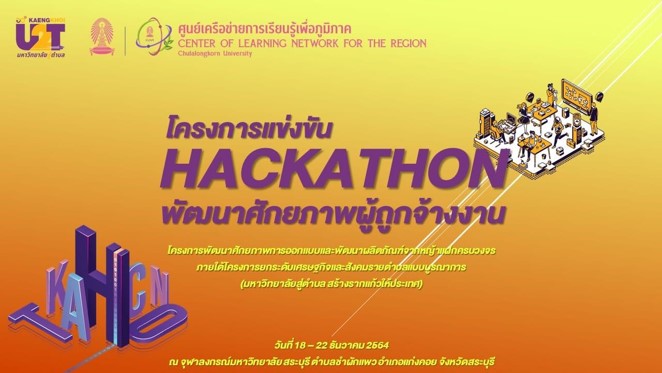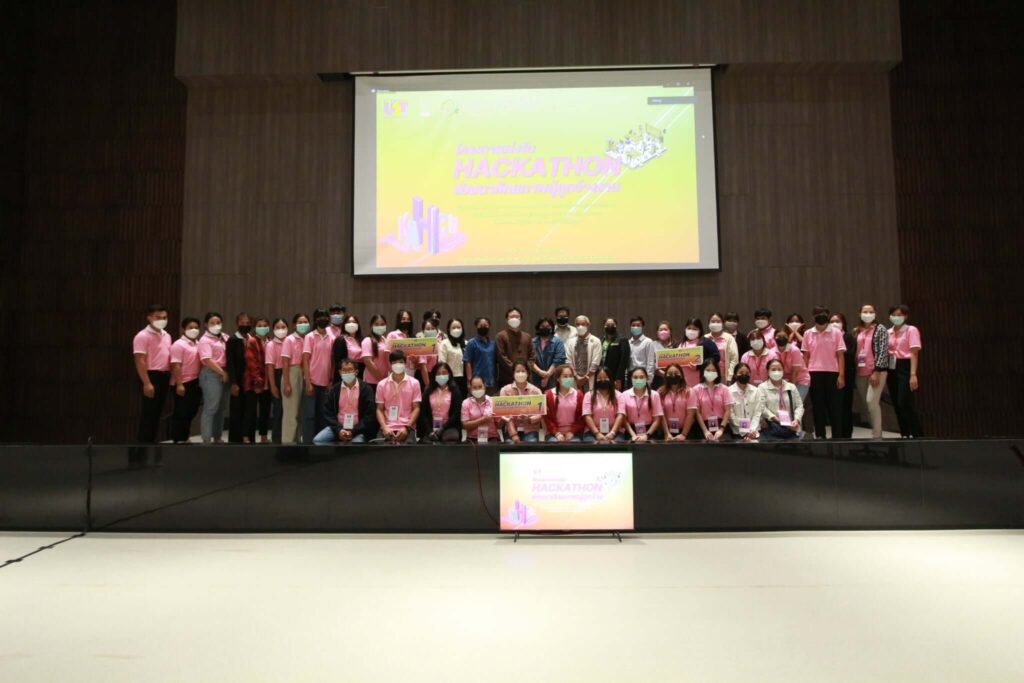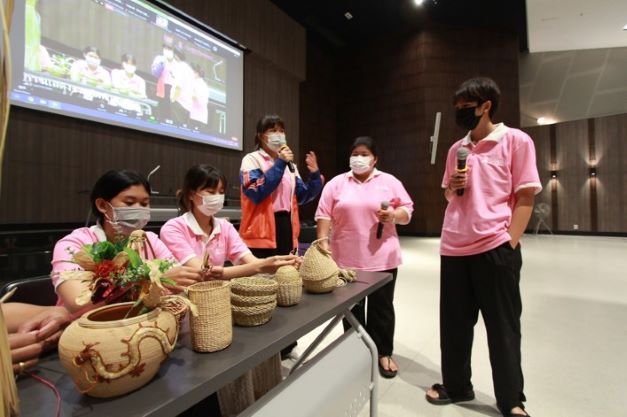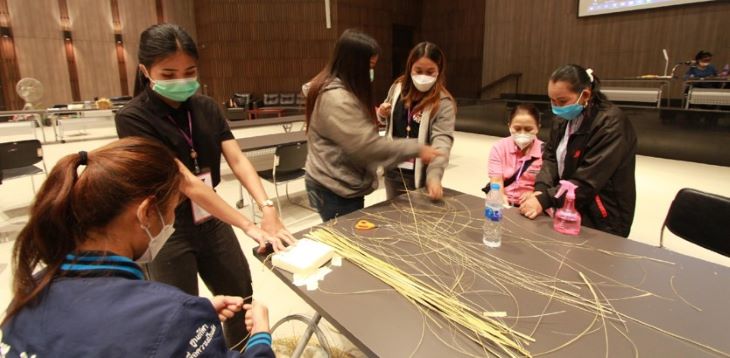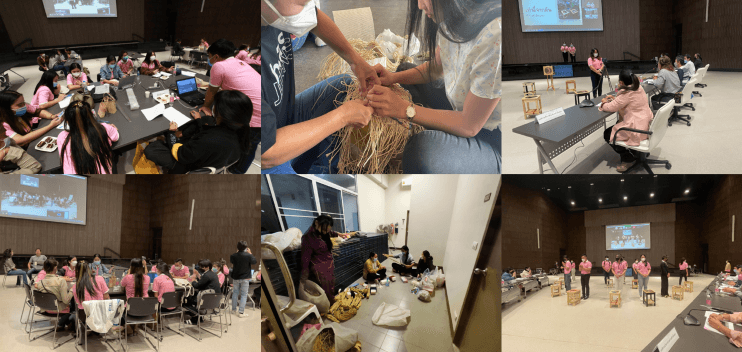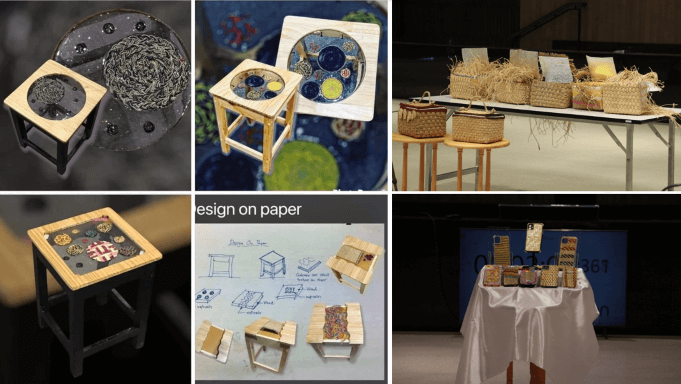Newswise — The COVID-19 pandemic which began in early 2020 and has been rampaging the world ever since has left countless people without jobs, careers, or income. The devastating impact on the economy is unfathomable. Yet, in the economic crises lie opportunities to build social capital. These were the hiring guidelines for CLNR — one of the agencies funded by the Ministry of Higher Education, Science, Research and Innovation (MHESI) to aid in the economic relief effort.
“This project not only helped local folks affected by COVID-19 to have access to some income, but we wanted them to know what their homes and communities are all about, let them feel that they can work from home, and that it isn’t always necessary to leave their hometown to find jobs. This will create a sense of love and pride in their native soil,” Assistant Professor Dr. Noppadon Kitana, Director of CLNR mentioned the goals of the project.

Assistant Professor Dr. Noppadon Kitana, Director of CLNR
Community survey created a sense of local pride
During the first wave of the COVID-19 outbreak, CLNR employed a total of 138 people in 6 provinces, namely Saraburi, Nakhon Nayok, Prachinburi, Kanchanaburi, Chonburi, and Chanthaburi to create a database of local resources for the Plant Genetic Conservation Project under the Royal Initiative of Her Royal Highness Princess Maha Chakri Sirindhorn during July – September 2020.
After that project had ended, the Saraburi model which achieved the most complete and comprehensive data was used as a blueprint for future projects.
“We used the survey data to build a directory of native resources of the provinces, and printed posters of native plants, animals, and folk wisdom and distributed them to all the Subdistrict Administrative Organizations, and schools in Saraburi Province to raise people’s awareness of local highlights. Moreover, the information could be further developed into lessons, card games, board games on local resources as well.”
Asst. Prof. Dr. Noppadon added that after the completion of the initial phase of the project, many employees started to recognize their community capital, and opportunities to build on the capitals in their hometowns.
Chula to Townships: the hiring of 3 target groups for new knowledge
In 2021, the pandemic not only prolonged but exacerbated people’s struggle with the third and fourth waves of outbreaks. Therefore, MHESI extended the project “University to Township (Tambon) – Building the Taproot for the Country (U2T)” by funding an extension of the employment period to 11 months from February to December 2021 and increasing the number of jobs in 3,000 townships nationwide.
Many departments in Chulalongkorn responded by launching various projects to hire the target groups. CLNR continued to work with three townships in Kaeng Khoi District, Saraburi Province where the center is located: Huai Haeng, Cham Phak Phaeo, and Tan Diao.
“In response to the Ministry’s mandate, employments for this phase focused on three groups of people: new graduates who were local and jobless, residents who were affected by the pandemic, and students. We wanted to see people of different generations exchange ways of learning and opinions,” Asst. Prof. Dr. Noppadon said, adding that the ratio of employment was 20 people per township, with 10 new graduates, 5 local residents regardless of their education, and 5 students.
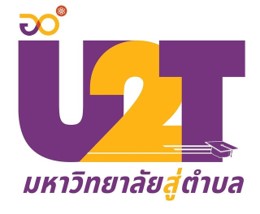
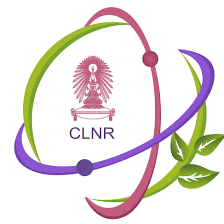
Combining folk wisdom with modern knowledge to build community enterprises
CLNR saw an opportunity to raise people’s awareness of local wisdom and instill local pride and hired the target groups to participate in the Vetiver School project at the Center’s site in Saraburi.
“They studied together, worked together, and helped develop products that combined local wisdom with modern knowledge in the design and marketing,” said Asst. Prof. Dr. Noppadon.
“We educated participants about all aspects of the vetiver grass, e.g., ecological farming, harvesting, and various uses. We invited trainers from the Vetiver Conservation Network in 12 districts across the country to help train participants on how to use vetiver grass to make handicraft products. We also asked professors from the Department of Creative Arts, Faculty of Fine and Applied Arts, Chulalongkorn University to lecture about contemporary design to spark new creative ideas. Speakers from private companies were invited to teach various forms of digital marketing, including a team from Lazada Thailand who gave tips on opening an online store, etc.”
Asst. Prof. Dr. Noppadon expected that the communities would be able to create different vetiver products and not just the same old ones we are familiar with and would pave the way to future business and community enterprises.
Develop skills, create local employment opportunities
In addition to working with CNLR to develop vetiver grass products, participants would have to work on other assignments from the Ministry, such as community-based data collection, poverty assessment of local residents, and community health risk assessment. They were also trained in four essential skills: English language, digital literacy, social skills, and financial skills through online learning platforms of Thai MOOC, the Stock Exchange of Thailand (SET), and the Digital Government Development Agency (DGA).
“CLNR sent new graduates to work with agencies in the province, such as the Provincial Public Health Office, the Social Security Office, human resources agency, and so on. Many performed so well that they got hired full-time. This is one of our successes that the graduates from the program have secured jobs and incomes,” Asst. Prof. Dr. Noppadon concluded with pride.
Although the employment program has already ended and is under its final assessment phase, the people of the communities continue living their lives with income, knowledge, and new skills that will create great opportunities for themselves and their communities.


